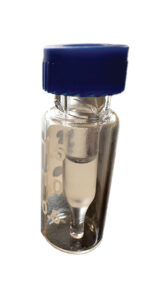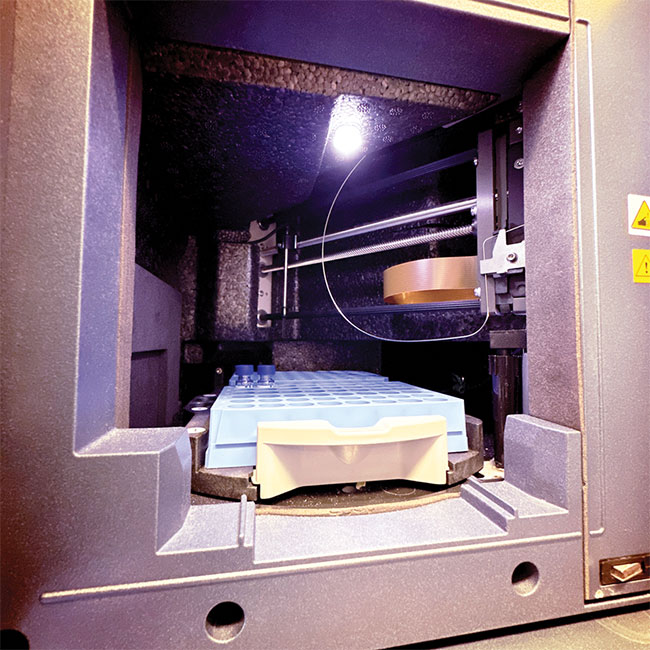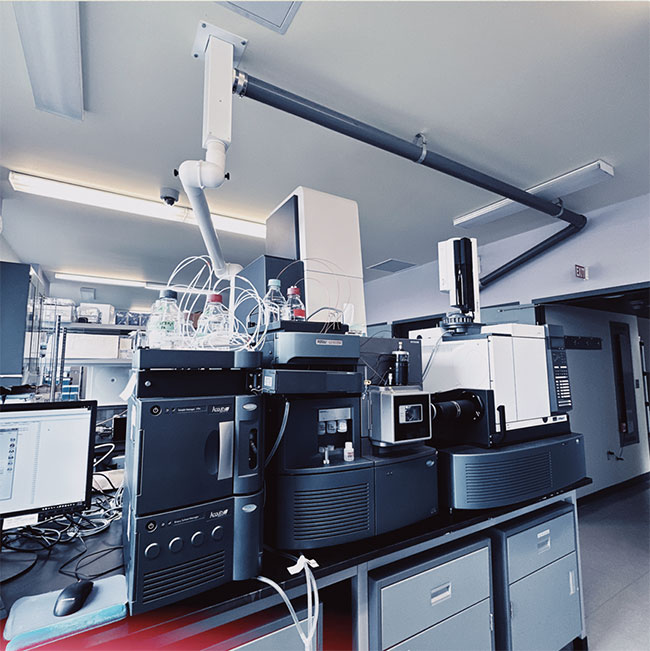
What if plants could talk?
Gaining a knowledge of plant chemistry can lead to tangible benefits like improved crop yield, early detection of issues related to production and plant health and better-quality products. So why doesn’t everyone understand the chemistry of their plants? The problem is that speaking this language requires specialized technologies and expertise, limiting its applications and accessibility for those who could truly benefit from hearing what their plants are telling them.
Metabolomics, also referred to as metabolite-profiling, can measure specific compounds known to be associated with a plant or health condition, while also “seeing” the hundreds to thousands of other molecules unique to specific plants and their environment. All of these are actively changing and responding to the organisms and conditions surrounding the plants.

Metabolomics provides us with the know-how to measure a wide range of compounds in plants, giving us a comprehensive picture of their health and traits, without the need to predict in advance the exact molecule to look for.
A complementary approach to traditional plant nutrient tests, metabolomics provides a high-resolution assessment of the complex metabolic pathways that use the elements and minerals measured in assays like leaf sap analysis. Ultimately, these results can save costs and valuable time in finding solutions and guiding decisions, while leading to healthier plants and more sustainable practices to allow modern growers to become more competitive in the marketplace.
Collaboration between scientists and growers results in the translation of complex chemical data into straightforward, evidence based solutions and innovations. Metabolomics can enhance results from pest and disease resistance scoring, growth measurements, bioactivity reports, product or plant trials, flavor or aroma profiling and most other types of data both qualitative (including anecdotal observations) and quantitative.
Using advanced techniques like metabolomics can offer growers a competitive edge. This shows a commitment to innovation and quality, which can be an amazing selling point in today’s market where consumers are increasingly interested in how their food is grown and what is in it.

HOW CAN METABOLOMICS HELP GROWERS AND THE INDUSTRY?
Early disease and stress detection. Metabolomics can identify changes in plant metabolism before visible symptoms occur, often including the presence of insect or microbial pests and viruses. Early detection allows growers to intervene before diseases spread or stressors overtake thereby saving plants and reducing losses.
Optimization of growth conditions and parameters. By analyzing metabolites, growers can understand the nutritional needs and stress levels of their plants at specific time-points or developmental stages. This information can guide proper adjustments in watering, lighting and soil or growth media leading to healthier plants and improved yields.

Quality control and innovation. Metabolite profiling helps ensure consistent quality in products. By monitoring the levels of metabolites related to taste, nutritional content, color or aroma, growers can maintain desired traits in their plants.
Breeding and genetics. Metabolomics can aid in selecting the best varieties for breeding programs, focusing on those with desirable traits like drought resistance or higher nutritional content. This can lead to the development of superior plant strains tailored to specific greenhouse conditions, climate or traits of interest.
Pest and stress management. By understanding the chemical changes in plants under stress or attacked by pests, growers can develop more effective strategies for pest control and stress mitigation, ensuring plants are healthier while reducing reliance on pesticides.
Customizing fertilization and treatment plans. Metabolite profiling can reveal the specific nutrient needs of plants at different growth stages. Results enable tailored fertilization plans — ensuring plants get exactly what they need when they need it — leading to more efficient use of resources.
Plant health and setting standards. Metabolomics can function as a checkup for plants by capturing how healthy, thriving plants look at the molecular level. This is especially useful when a grower is thinking of switching their production practices, like implementing a new growth medium, trying a different treatment or introducing new varieties. By establishing a baseline of what the plants’ chemistry looks like when they’re in top shape, any changes that may occur can be monitored and allow us to remain one step ahead, ensuring accurate risk management strategies are employed without waiting for visible signs of stress or problems.

Problem solving and unraveling mysteries. Is something just not right with the plants and it isn’t clear why? Whether it’s a drastic or gradual change or just a gut feeling, metabolomics helps to uncover hidden clues by capturing the chemical fingerprints of plants and their surrounding environment. This way, the possibilities for what’s causing the issue (or not) can be narrowed down, guiding growers toward the right solution and turning baffling moments into actionable insights.
Environmental sustainability. By optimizing growing conditions and reducing the need for chemicals, metabolomics results contribute to more sustainable farming practices. This not only benefits the environment but also aligns with the growing consumer demand for eco-friendly products.


 Video Library
Video Library 




















